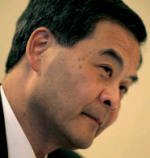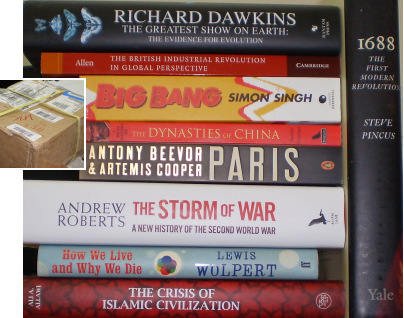As if I didn’t have enough reading material to choose from after a much-anticipated Christmas-related parcel from Amazon arrives, the latest edition of Hong Kong Journal appears. It is a curious little on-line publication, funded by a Carnegie endowment, edited by former South China Morning Post editor Robert Keatley and ignored by virtually everyone, except me. Despite occasional content of questionable value – an article by ex-Liberal Party boss James Tien, inheritor of Shanghai textiles wealth, for example – it usually has a few items worth looking at.
For example, former journalist and government advisor Leo Goodstadt discusses Hong Kong leaders’ aversion since 1998 to social expenditure, justified by scaremongering about the burden of the elderly, despite having excessive amounts of revenue, rising poverty rates and deteriorating standards of health care and education for the masses.
Then there is the piece by Leung Chun-ying, “considered by many,” the Journal says, “the leading candidate to succeed Donald Tsang in 2012 as the government’s next chief executive.” Among members of the Leung household, maybe; I can think of some 7 million people who assume that Beijing will hand the crown to chief secretary Henry Tang, inheritor of Shanghai textiles wealth, with a senior civil servant-turned-minister to act as his eyes and ears (not to mention at least one other organ of the head).
More’s the pity. CY would like the job, and after the rolling disaster stories known as Tung Chee-hwa and Donald Tsang Yam-kuen it would be nice to have someone who is neither the scion of a Shanghainese fortune nor a lifelong bureaucrat stuck in a 1970s policy time-warp (let alone a double-act).
On the face of it, he should be a shoe-in. He is of Shandong extraction (nothing personal, but Beijing feels a bit more comfortable with a non-Cantonese). He was a paid-up member of the patriotic pro-Communist cause way back in the 1970s, when the Tungs, Tangs, Tiens et al were still furiously licking and polishing the colonial British shoes young Donald daydreamed of one day filling. But he has a problem. He is rich, but his wealth is essentially self-made, and it did not come from being a privileged member of the property or old textile cartel-scams. For reasons that can only be guessed at – probably the growing corrupt linkages between the CCP and Greater China’s tycoon caste – we can be pretty sure Beijing will go for old-money/new patriot Henry. It doesn’t help that the property moguls detest CY.
CY does have (or at least has had) a faction that supports him in the upper reaches of the central people’s government. But he must feel his only real chance is to play the public opinion card. Beijing learnt the hard way with Tung that a Hong Kong chief executive has to be acceptable to the city’s people – that’s what we like to think, at least – and in this Journal article CY turns the volume of his 2012 election campaign up another notch. Quite an important notch, too, as for the first time he is pretty openly criticizing the current government, of which he is a rather enigmatic and aloof non-executive member.
He makes many of the same points as his fellow-contributor:
…over the last decade … labour productivity improved by almost 4% a year even though real wages rose by an annual average of less than 0.5%. (Goodstadt)
…a million people – about 30% of Hong Kong’s workforce – earned less in 2006 than they did in 1996. In the same decade, GDP per capita increased by 34%. (Leung)
 His analysis, more forthright than in his undeclared campaign up to now, is an indictment of the policies of Donald Tsang and his deputy, Henry Tang: our problems require internal reform not external intervention; inequality is a serious threat; probably only around a quarter of the population are getting a fair deal; homes are far too expensive and far too small; suspicions of collusion are widespread; is it any wonder people vote for Long Hair?
His analysis, more forthright than in his undeclared campaign up to now, is an indictment of the policies of Donald Tsang and his deputy, Henry Tang: our problems require internal reform not external intervention; inequality is a serious threat; probably only around a quarter of the population are getting a fair deal; homes are far too expensive and far too small; suspicions of collusion are widespread; is it any wonder people vote for Long Hair?
Leung adds a barely disguised attack on our officials’ self-conscious and nervous relationship with mainland counterparts, the message being of course that he has contacts and decades of experience up there, and the Tsang-Tang bunch don’t even know how to play the game. For good measure, he proposes a style of governance that many in Hong Kong as well as Beijing might like to hear: a strong executive with little time for legislators, in exchange for people-based policies.
If you’re looking for a commitment to universal suffrage, or even existing rights like press freedom, you won’t get it here. But there is probably no need to worry, because CY’s proto-candidacy is a long shot. Originally founded to defend the downtrodden masses, the CCP is gradually turning into another crony- and corruption-riddled Kuomintang, with inherited political power becoming harder to disentangle from inherited or state-connected wealth. Self-made entrepreneurs are outsiders. CY is an outsider. I’m an outsider. You’re an outsider. The “poorest in the community who live in public housing” are outsiders. The “90% of Hong Kong’s population that feels entirely disengaged from the world-leading financial services economy being ‘challenged’ by Shanghai” are outsiders.
Henry it will be.
Good article about being CE though, CY; as the pile in the photo shows, I should read more fiction.


You are not the only reader of the “Hong Kong Journal”. There is -at least- one more! I fully agree with you: they publish some readable articles. Quite interesting your description of Leung Chung-Ying. Back in the 1990’s almost nobody could have imagined someone like CY as CE. But compared to Tung and Tsang (and Tang) he now seems to be quite acceptable. It also sadly reminds us how awful are the choices for the new leader of Hong Kong’s government.
One wanders away for a moment, and comes back to find massive reorganization. This is much better. Geocities died a decade ago.